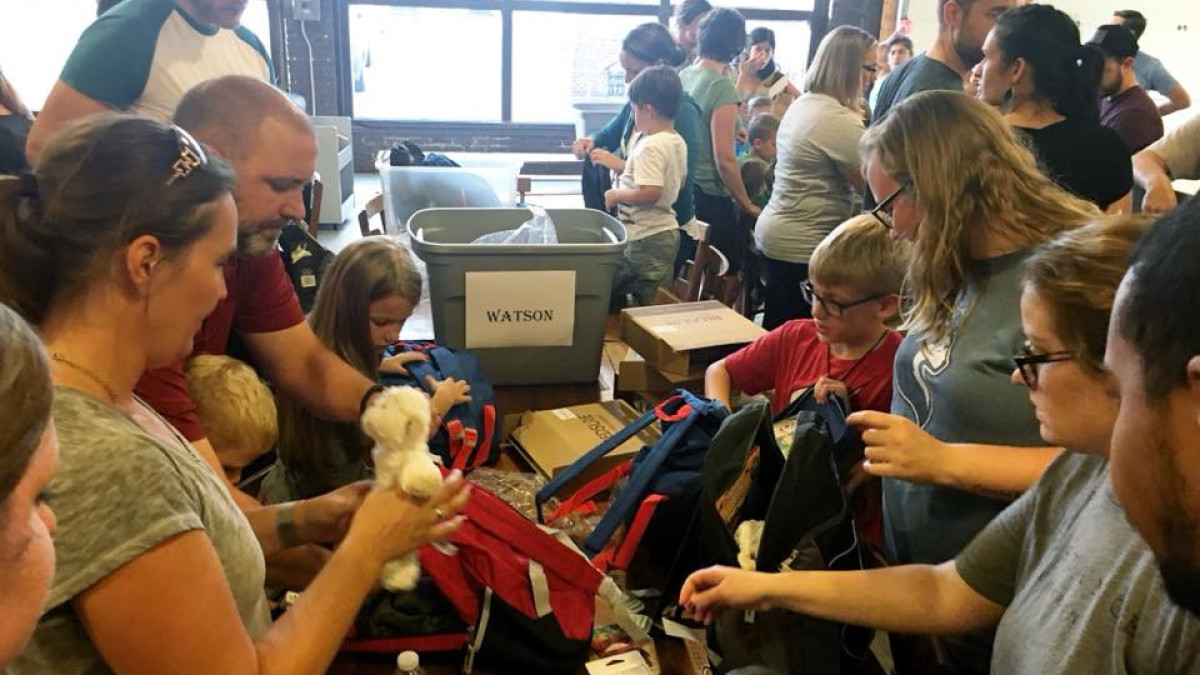
Comfort for Children in Crisis
How one church met the needs of children entering the foster care system
Ashland, Ohio, is a quintessential midwestern town. People turn and wave as you drive by. It’s a rarity to not come across someone you know while wandering the aisles of the grocery store. But it wasn’t until I started teaching in my little corner of “Mayberry” that I saw the brokenness of our town.
When I took a first-grade teaching position in my local school district a little over a year ago, I was shocked to discover that a large percentage of my students were currently involved in or had previously been involved with Child Protective Services.
These young students were experiencing the fallout of choices they did not make—and suffering the major emotional and physical repercussions of such choices.
As I got to know these children and their foster families, I began to hear the stories that both broke my heart and opened my eyes to the amount of brokenness in Ashland, largely due to the drug epidemic in our area. As the year progressed, my eyes were further opened as 6- and 7-year-olds were pulled from school in the middle of the day and placed in the back of squad cars because it was unsafe for them to return home. These children literally had nothing but the clothes on their back and the shoes on their feet.
These young students at my school were experiencing the fallout of choices they did not make—and suffering the major emotional and physical repercussions of such choices. Not only were they removed from traumatic and unsafe situations, but many times they were also relocated without the opportunity to take the stuffed animals, blankets and or other security items that they love and cherish. These small objects are precious, comforting items to a child in trauma.
Mobilizing to meet a community need
As I thought about these children and their needs, I decided to approach my pastor at Substance Church with an idea. What if we, as a church family, provided comfort items in backpacks for children being placed in foster care?
These backpacks would be put into the hands of case workers, police officers and first responders to be given to children at the first point of contact. Our church rallied behind the idea, and we started planning what these backpacks might include and the process through which they would be packed and distributed.
Community groups throughout the church began to mobilize. Each community group gathered enough items to pack five backpacks. Our church supplied the bags themselves, and each bag contained the same gender-neutral items: a soft blanket, a stuffed lamb, a night light and a coloring book. Each bag cost $30, and supplies were easily purchased by families in each community group through access to an Amazon wishlist.
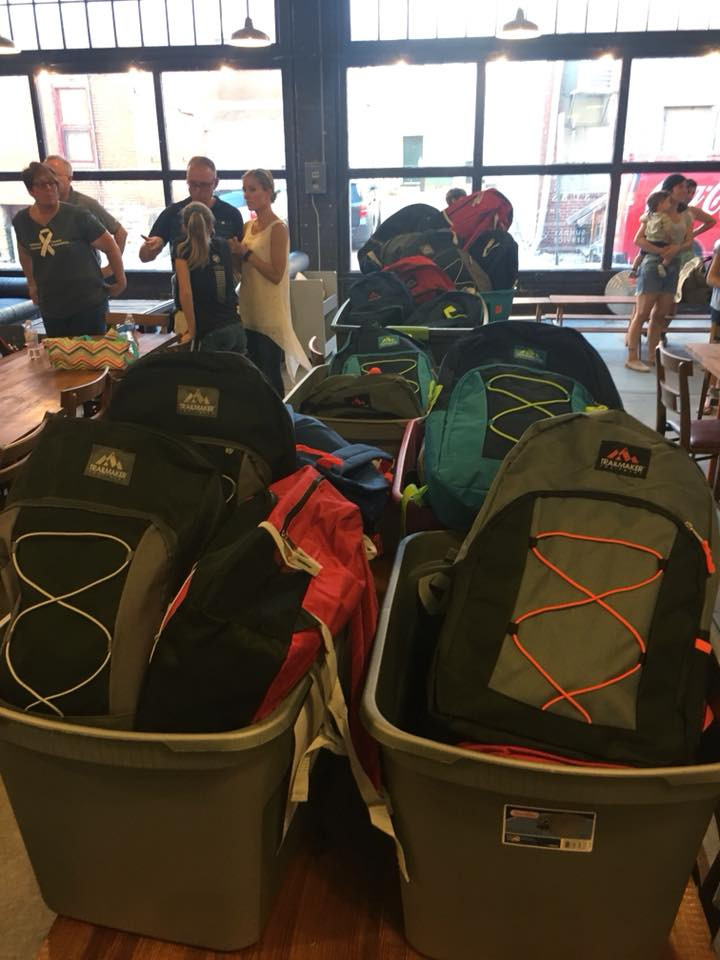
Once the supplies had been gathered, we came together for a large “pack night” at our church building. Each community group brought their items, ready to be packed in the empty backpacks.
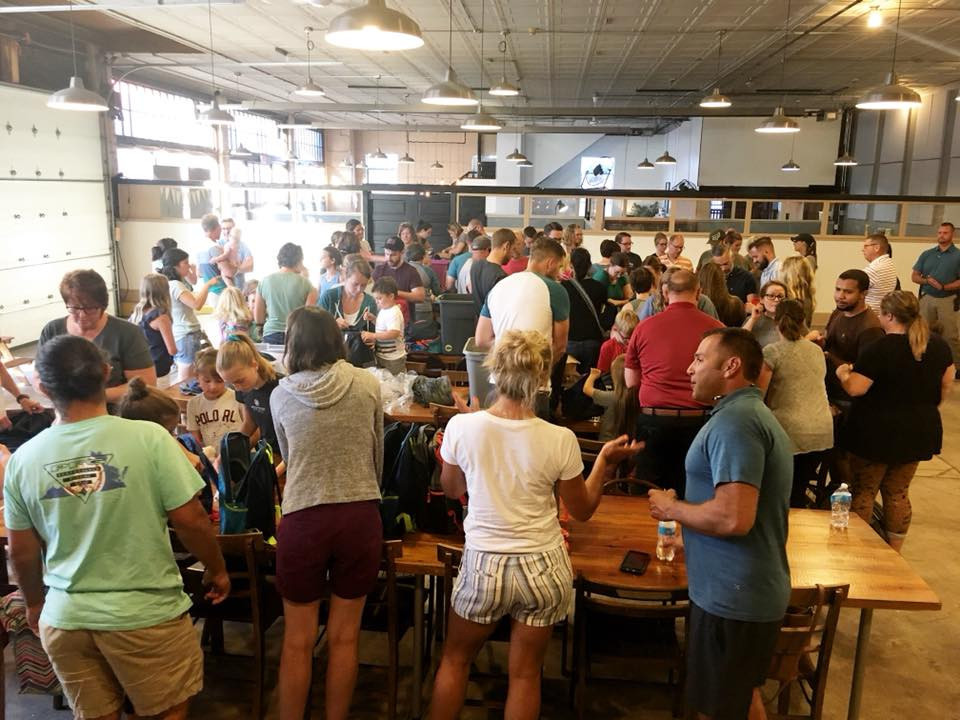
We had also invited our local police officers and case workers from CPS to come and create awareness for us of what is going on in our community. We then got the opportunity to pray for these workers, thank them for their service, and pack the backpacks with the pre-purchased items.
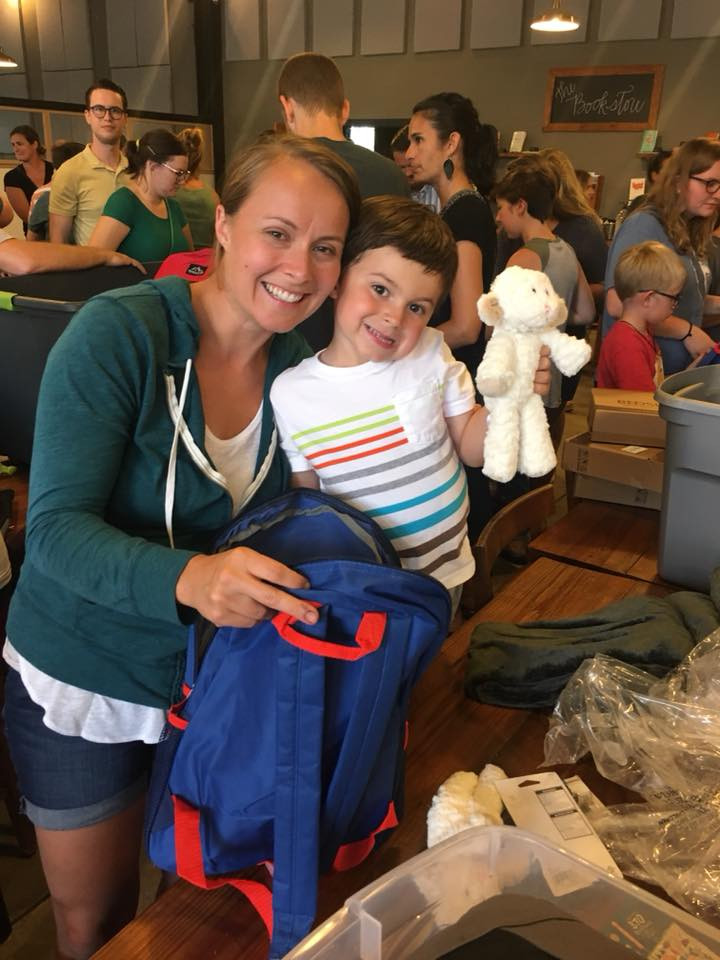
We were able to tangibly serve “the least of these” with gospel intentionality.
The beauty of that night was not just in what we were able to provide for these children, but also in the way that we were able to encourage, support and love on police officers and children’s service workers, who carry incredibly heavy burdens and hear little thanks for their work.
Caring for the weak and fatherless
Practically speaking, supplying items for the book bags was simple and manageable. By involving our church’s community groups, we were able to provide more bags for kids while creating awareness of the need in our community. We were also able to tangibly serve “the least of these” with gospel intentionality.
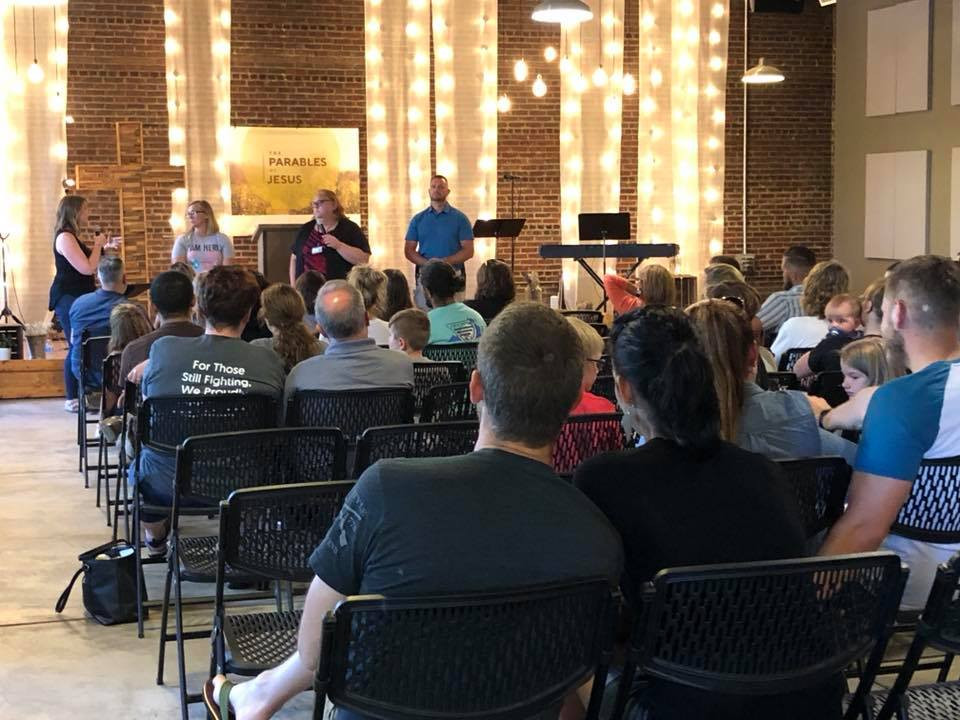
Psalm 82:3-4 says, “Give justice to the weak and the fatherless; maintain the right of the afflicted and destitute. Rescue the weak and needy; deliver them from the hand of the wicked.” These children are literally the fatherless, the weak and the needy. It helped our church body to see that these kids are not just numbers. When we really looked, we saw that they were sitting with us on Sunday mornings and playing with our own children at recess. These backpacks met a need in our community, and we had the opportunity to be available and creative in the way that we met that need.
Since our “pack night,” I am happy and sad to say that our backpacks have been put to use. They are serving their purpose in helping ease children into their new foster care placements as gently as possible while giving them security in a new and scary place. This initiative has also allowed us to start to build relationships in our small community with the police department and CPS.
As I think back on our pack night, a comment by a CPS worker still sticks with me. When asked how the backpacks would help in the removal process for a child, she mentioned that up until that time, the only way to transport items belonging to these children was to put everything in trash bags, which is a heartbreaking image to an already hurting child. She told me: “I’m just glad that when I go into a home to remove a child, I won’t have to put these kids’ things in a trash bag anymore.”
If you or your church are interested in starting a similar program, contact the author at ashley@substance-church.org.
Send a Response
Share your thoughts with the author.